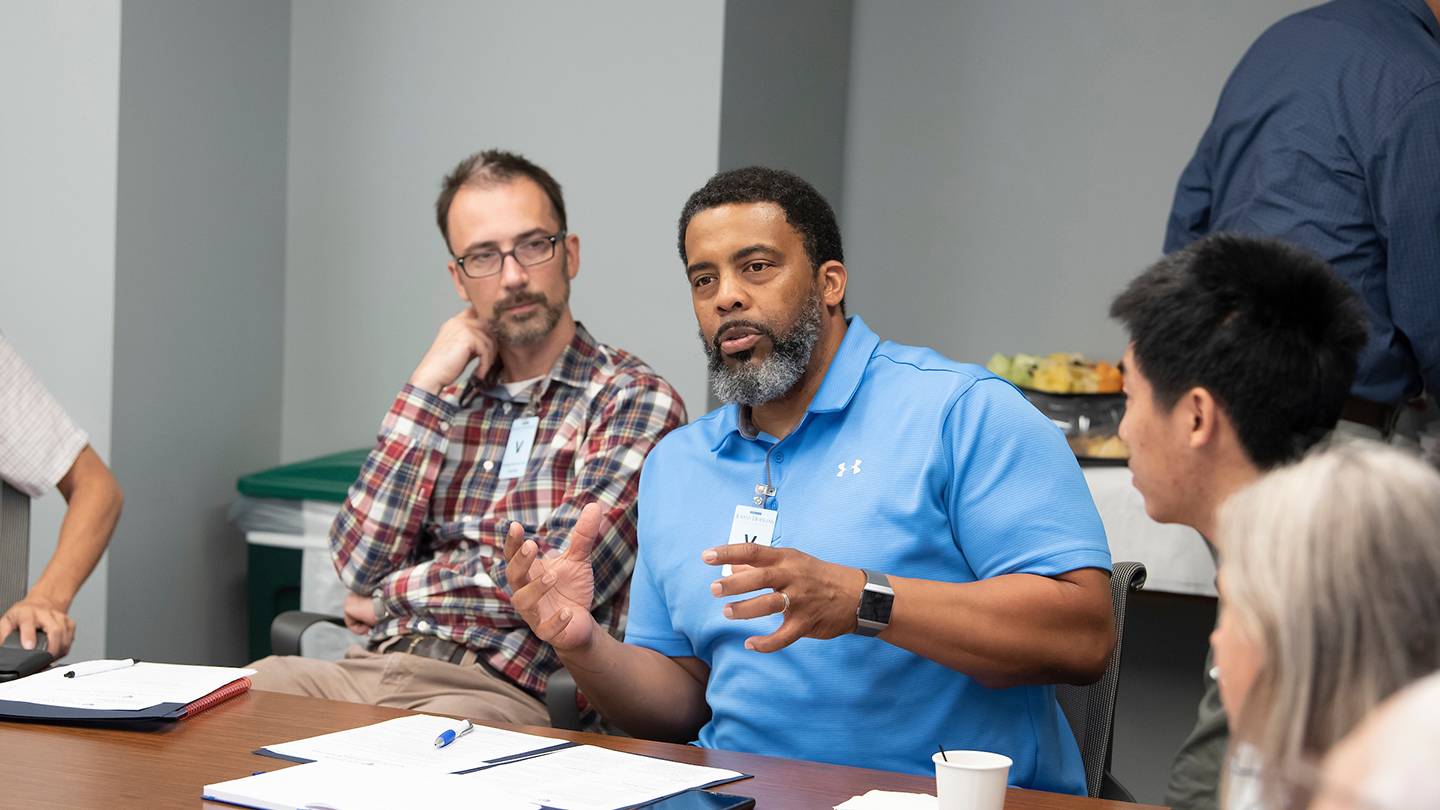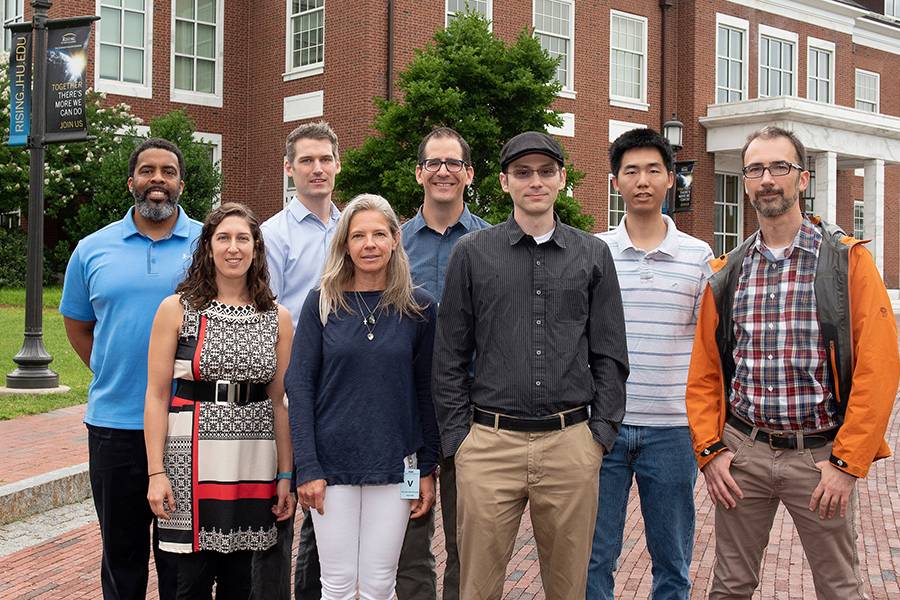Kara Shipley had always planned to pursue a doctorate in engineering someday, but life got in the way, including a thriving professional career, a husband, and, eventually, a daughter.
"I got my undergraduate degree and went straight into the workforce because I loved putting my knowledge and skills to work in a practical way," said Shipley, an assistant section supervisor in the Johns Hopkins University Applied Physics Laboratory's Oceanic, Atmospheric and Remote Sensing Sciences Group. "I earned my master's in mechanical engineering at Johns Hopkins part-time while I was working, but I didn't go on from there because doing a thesis while working full-time and balancing family responsibilities seemed too daunting."
Until now.
This summer, Shipley became a member of the first cohort of students accepted to the Whiting School of Engineering's innovative new Doctor of Engineering program, which was designed with the needs of working, mid-career engineering professionals like Shipley in mind.
"This program is a perfect fit for me because it will enable me to get the doctorate that I always wanted and planned for while still working full-time and raising my daughter," she said.
Like a traditional PhD, the DEng program is grounded in a candidate's advanced research and mentorship by a member of the Whiting School's engineering faculty.
But the similarities end there. While traditional PhD programs focus on engineering theory and scholarship to prepare candidates for careers in academic or industrial research and leadership, the DEng program centers on engineering practice and application to prepare graduates for technical leadership roles in industry or the public sector.

Image caption: Members of the first DEng cohort met on the university's Homewood campus in June for a semi-annual conference
Image credit: Larry Canner / Homewood Photography
Students in the new program don't have to spend the five or more years on a university campus conducting laboratory-based research—they continue to work full-time, focusing on applying creative and innovative solutions to challenges that arise in their companies or agencies.
"Unlike a traditional dissertation conducted in university laboratories, the DEng students' projects are very 'real world' in nature," said Ed Scheinerman, vice dean for graduate education at the Whiting School. "This allows the students to have direct and immediate impact at their place of work."
Another notable difference between the traditional and the reimagined models is that instead of culminating in a dissertation—a fitting accomplishment in the world of academia—DEng students will present the fruits of their research in ways more appropriate for industry and the public sector, such as through the creation of prototypes, videos, simulations, patent applications, and more.
Though the bulk of the DEng candidates' work is done at their places of employment, they will come to campus twice a year for semi-annual conferences in January and June. They will meet with their advisers, take oral examinations, and participate in networking, professional development, and social events.
The first of those conferences brought Shipley and the seven other members of the first DEng cohort to Homewood last month for meetings, a campus tour, lunch with Whiting School Dean Ed Schlesinger, and professional development sessions.
"The visit up to JHU's campus was great!" Shipley said. "I enjoyed getting to know the other participants, what they are working on, and where they are in the lab. I found the morning session was a good orientation to the program, and it was useful to hear Dean Schlesinger's take on the genesis of the program, the benefits it brings, and even that the program is as much about the process as it is about the actual project."
Though all members of the first cohort come from the Applied Physics Laboratory, the program will accept applications from the wider community in September. Scheinerman's office has already fielded hundreds of inquiries from prospective students around the world who learned about the program through the grapevine or through the program's website.
"We've heard from people as far away as the Middle East who are interested in learning more about this program, which we believe is unique in the United States," he said.
Schlesinger says he views this level of interest as evidence that traditional PhD engineering programs needed to be reinvented to provide a huge pool of working engineers the opportunity to advance their knowledge and rise to the top of their professions.
"It's not only the engineers who have much to gain: industry and the public sector also will benefit by having employees with high-level skills and innovative problem-solving abilities," he said. "Our hope is that this new approach raises the level of expertise across the engineering profession and better prepares engineers to address the world's increasingly complex and high-stakes challenges."
Posted in Science+Technology, Student Life
Tagged engineering, graduate, graduate research








